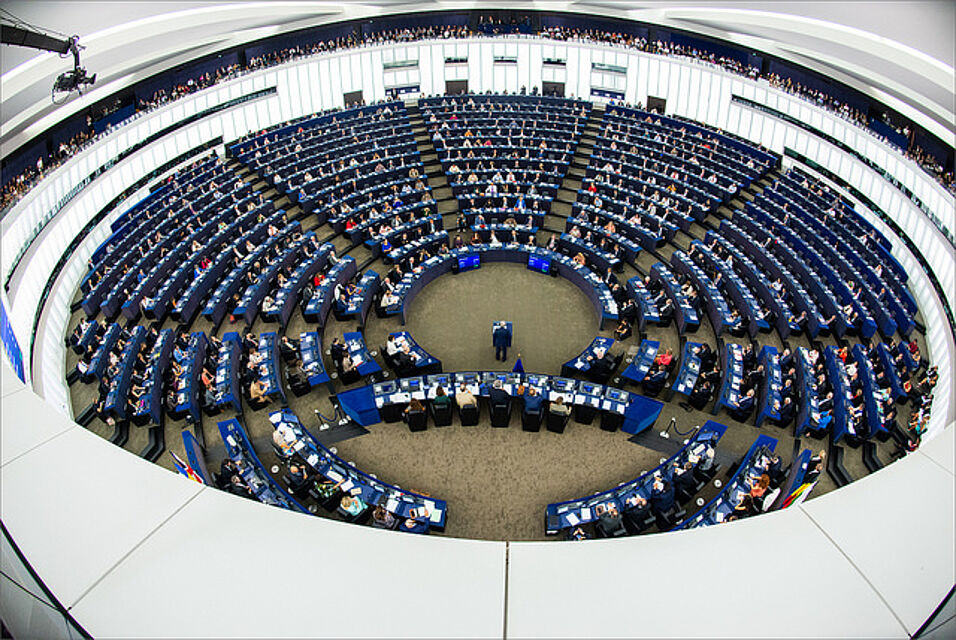The following post, first published as a blog on the RECONNECT website, describes their empirical efforts to this end, which center around a two-wave panel study to be fielded before and after the 2019 European Parliament elections. More information about the RECONNECT project can be found on the official project website.
A key aim of the RECONNECT project is to understand and explain the EU’s current crisis of legitimacy in the wake of recent crises and the ensuing popularity of a new wave of (anti-EU) populist forces. This latter political tendency suggests a strong and potentially increasing level of disconnect between the European Union and its institutions, on the one hand, and citizens, on the other. The decision of British voters to leave the European Union in the 2016 referendum and the strongly anti-EU discourses developing in Hungary and Italy demonstrate the severity of the threat posed by this disconnect for European governance. As such, it is imperative to understand the nature of this disconnect, and principally, how the European Union and its institutions are perceived by citizens. It is only on this basis that policy recommendations and a new narrative for Europe that speaks to the real concerns of EU citizens can be developed.
To this end, the RECONNECT team at the University of Vienna will be fielding a two-wave citizen-level panel survey before and after the upcoming European Parliament elections (23–26 May 2019). Not only will the outcome of the election determine the composition of the Parliament for the next five years, and thus influence the nature of the EU’s substantive policy output, but also possibly provide a key marker of the European-wide electoral strength of populist forces. The survey aims to capture important aspects of how citizens relate to the EU and its institutions during the ‘heat’ of the election campaign (e.g. political attitudes, vote choice, knowledge and campaign attentiveness), and, ultimately, understand the forces that lead to the final outcome. As such, the survey promises to shed light on the foundations of any disconnect from the citizen perspective.
Thematically, a key focus of the survey is the study of how messages at the elite level resonate at the citizen level via political discussion. As such, the survey will provide data on the types of EU issues that are discussed during the campaign, whether individuals disagreed with those they discussed these topics with, and the extent to which discussion partners’ opinions were perceived to be based upon misinformation. The panel design means that this analysis of political discussion is not static: data will shed light on how the discussion of EU topics changes from the relative calm of the pre-campaign period (wave 1) to the height of the campaign ‘heat’: Election Day (wave 2).
In addition, the survey will also offer extensive coverage of the following topics: citizens’ engagement in the campaign, including media use; attitudes towards the European Union and its institutions, including levels of trust; perceptions of democracy, including a measure of ‘populist’ attitudes; citizens’ knowledge of the EU, including familiarity with and support for standing European Spitzenkandidaten; and information on the level at which citizens’ think various key issues – including those covered by the RECONNECT policy case studies (migration, counter-terrorism, macroeconomic and fiscal governance, trade) – are and should be dealt with. Another key aspect of the survey is to investigate citizens’ knowledge in terms of both information and misinformation, and how this changes during the campaign: How much do citizens know about the EU pre- and post-campaign? And what is the extent of misinformation about EU institutions and EU policies?
This data collection precedes further empirical work at the citizen level as part of the RECONNECT project: in a next step, the ‘ideal’ EU in the eyes of citizens will be determined on the basis of a conjoint experiment. In combination with the results of the citizen-level European Parliament election survey, the results promise to provide a firm foundation for the development of a new narrative for European integration that resonates with citizens.
Empirical findings from the citizen-level survey and accompanying commentary and analysis will be posted in a series of blogs on the RECONNECT website as the campaign progresses.
Image: © European Union 2018 - European Parliament

